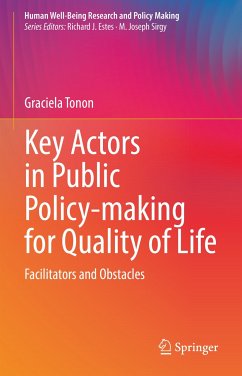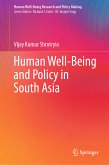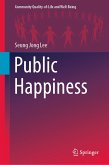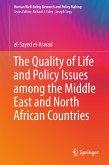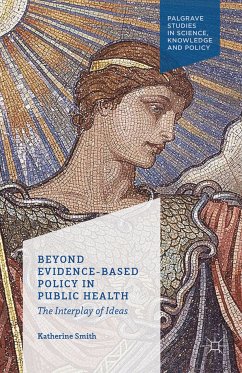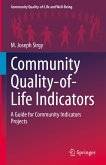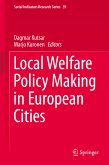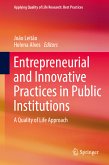This book analyzes how quality of life research results can be transferred to policy making, and considers the role of actors in this process---researchers, policy makers, and citizens---as well as their interrelationships. This book points to the need to include actors other than the state in public policy-making related to quality of life and well-being issues, in defining problems and formulating alternatives. It identifies obstacles and facilitators in the process and offers a review of different types of aid that affect well-being and quality of life. Finally, it shows possible pathways for various stakeholders in policy-making to interact with one another in the building of good societies.
Dieser Download kann aus rechtlichen Gründen nur mit Rechnungsadresse in A, B, BG, CY, CZ, D, DK, EW, E, FIN, F, GR, HR, H, IRL, I, LT, L, LR, M, NL, PL, P, R, S, SLO, SK ausgeliefert werden.
"The book is very well written and credibly argued, containing perspectives on historical narrative approaches and political logic, while featuring up-to-date case studies of rigorous quality, making it particularly suitable for researchers and students in Political Science to draw on. ... the book is highly practical ... you will find a 'step-by-step' actionable guide waiting. Reading this book was a pleasure and an intellectual treat for me to follow ... author's footsteps."(Lindan Tan, Applied Research in Quality of Life, Vol. 18 (5), 2023)

